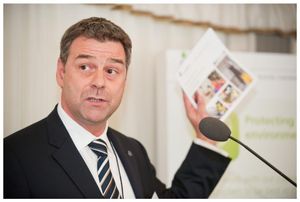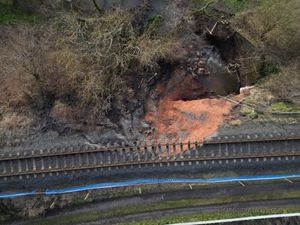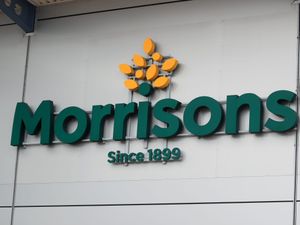Carillion: How the Black Country's top business went from a £5 billion turnover to liquidation
We look at what went wrong for the Black Country's biggest firm.
Over the last six months the giant Carillion operation has seen a dramatic swing in its fortunes.
Back on July 7 last year shares in the construction and support services business, which has its headquarters in Wolverhampton, were riding high at 192.1p, but within days they had plunged by 90 per cent in the wake of a profit warning.
Carillion, which employs more than 40,000 worldwide, was created in 1999 out of the de-merger of the Tarmac Group.
It has won work around the globe over the years, particularly in the Middle East and Canada, and by 2012 was ranked the top business in the Black Country with annual turnover of more than £5 billion.
By 2014 it was unsuccessfully bidding to buy construction rival Balfour Beatty.
Collapse
But in the wake of three profit warnings last year, the revelation of £1.15bn half year losses, a pension deficit of £590m and the collapse of its share price to as low as 15p, its future was thrown into real doubt.
Tomorrow last-ditch efforts will be taking place to secure fresh funding from its lenders that could put it back on the road to recovery.
Numbers employed by Carillion in Wolverhampton have fallen over recent years from as many as 750 at its height.
In March 2015 Carillion moved head offices in Wolverhampton city centre from Birch Street – the former Tarmac headquarters – to the five-storey former Staffordshire Building Society's headquarters building in Salop Street, which was re-named Carillion House.
The 42,323 sq ft former Staffordshire House, built in 1977, is now home to around 400 Carillion staff.
Back on March 1 last year, when Carillion's annual results were released, then chief executive Richard Howson was confidently talking of re-focusing effort on winning new work on infrastructure projects and outsourcing in the UK.

The construction and support services group had seen a fall in pre-tax profits of five per cent to £146.7m despite a 14 per cent rise in revenue for 2016 to £5.21 billion, driven by support services.
Mr Howson, who has since been replaced at the helm of the group, said that the prolonged low oil price had hit its ability to win new orders in the Middle East and Canada.
Carillion had won £4.8bn of new and probable orders – up from £3.7bn in 2015 – and was said to have a high-quality order book worth £16bn and a strong pipeline of contract opportunities worth £41.6bn.
Share prices plummet
Over the following months Carillion continued to report new orders at home and abroad, but then came July 10's profit warning that saw more than £250 million wiped off the value of Carillion shares in one morning.
In a half-year trading update, the company downgraded its full-year revenue guidance, with sales expected to be between £4.8bn and £5bn compared to 2016’s total of £5.2 billion and following a review carried out by accountants KPMG, the group said it would book an £854m provision linked to certain UK and overseas contracts. A total of £375m related to the UK and £470m to overseas markets in the Middle East and Canada.
Mr Howson stepped down with immediate effect and was replaced by non-executive director Keith Cochrane – the former head of the Weir engineering group – on an interim basis.
The group announced immediate action to accelerate the reduction in average net borrowing and measures to generating significant cashflow in the short term.
Among the steps taken to improve its financial position, Carillion exited from construction Public Private Partnership projects and pulled out of the construction markets in Qatar, Saudi Arabia and Egypt.
It has continued its work on existing construction projects such as the new £350m Midland Metropolitan Hospital at Smethwick.
The company also suspended its 2017 dividend payout to shareholders.
Over following days the share price continued to fall with nearly £600m wiped off stock market values within four days.
The firm, which appointed HSBC as an advisor following the collapse in its share price, revealed the massive half year loss on September 29.
Interim chief executive Keith Cochrane described it as "a disappointing set of results" and said results for the full year were expected to be lower than current market expectations.
In October the construction and support services group Carillion announced it had appointed a new chief executive to lead its turnaround.
The arrival of Andrew Davies from Wates Group was flagged for April 2 but has since been brought forward to January 22.
The start of 2018 saw the Financial Conduct Authority announce that is investigating the “timeliness and content” of Carillion’s market announcements ahead of its profit warning. Carillion is co-operating "fully" with the financial regulator.





